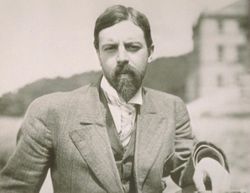

Queer Places:
Columbia University (Ivy League), 116th St and Broadway, New York, NY 10027
University of California, Berkeley, 110 Sproul Hall, Berkeley, CA 94720
Sunset View Cemetery
El Cerrito, Contra Costa County, California, USA
 Alfred
Louis Kroeber (June 11, 1876 – October 5, 1960) was an American cultural
anthropologist. He received his PhD under Franz
Boas at Columbia
University in 1901, the first doctorate in anthropology awarded
by Columbia. He was also the first professor appointed to the Department of
Anthropology at the University
of California, Berkeley.[3] He
played an integral role in the early days of its Museum
of Anthropology, where he served as director from 1909 through 1947.[4] Kroeber
provided detailed information about Ishi,
the last surviving member of the Yahi
people, whom he studied over a period of years. He was the father of the
acclaimed novelist, poet, and writer of short stories Ursula
K. Le Guin.
Alfred
Louis Kroeber (June 11, 1876 – October 5, 1960) was an American cultural
anthropologist. He received his PhD under Franz
Boas at Columbia
University in 1901, the first doctorate in anthropology awarded
by Columbia. He was also the first professor appointed to the Department of
Anthropology at the University
of California, Berkeley.[3] He
played an integral role in the early days of its Museum
of Anthropology, where he served as director from 1909 through 1947.[4] Kroeber
provided detailed information about Ishi,
the last surviving member of the Yahi
people, whom he studied over a period of years. He was the father of the
acclaimed novelist, poet, and writer of short stories Ursula
K. Le Guin.
Alfred Kroeber and his wife Theodora Kracaw Kroeber were pioneering anthropologists largely responsible for the establishment and growth of the Department of Anthropology at the University of California. In 1939 Alfred Kroeber published a landmark essay in which he called his fellow anthropologists to task for their reluctance to study the American Indian berdache tradition because of its close link to homosexuality. The berdaches occupied a position of respect among many tribes, serving an almost shamanistic function in tribal culture. They were usually men who cross-dressed as women, and took on many of the tasks and skills associated with the women of the tribe. They also actively engaged in sexual relations with other men, and since it was unavoidable to discuss the berdaches without making reference to homosexuality, most anthropologists chose to turn a blind eye to the practice. For Kroeber, the enlightened treatment of male-male sexuality among “primitive” peoples provided a model from which more “advanced” societies had much to learn.

Ishi, last yahi indian Ishi, the last known member of the Yahi tribe, with anthropologist Alfred L. Kroeber.
Kroeber was born in Hoboken, New Jersey,[5] to upper middle-class parents: Florence Kroeber, who immigrated at the age of 10 to the United States with his parents and family from Germany, and Johanna Muller, who was of German descent. His family moved into New York when Alfred was quite young, and he was tutored and attended private schools there. He had three younger siblings and all had scholarly interests. The family was bilingual, speaking German at home, and Kroeber also began to study Latin and Greek in school, beginning a lifelong interest in languages.[1] He attended Columbia College at the age of 16, joining the Philolexian Society and earning an AB in English in 1896 and an MA in Romantic drama in 1897. Changing fields to the new one of anthropology, he received his PhD under Franz Boas at Columbia University in 1901, basing his 28-page dissertation on decorative symbolism on his field work among the Arapaho. It was the first doctorate in anthropology awarded by Columbia. Kroeber spent most of his career in California, primarily at the University of California, Berkeley. He was both a Professor of Anthropology and the Director of what was then the University of California Museum of Anthropology (now the Phoebe A. Hearst Museum of Anthropology). The anthropology department's headquarters building at the University of California is named Kroeber Hall in his honor. He was associated with Berkeley until his retirement in 1946.
Kroeber married Henrietta Rothschild in 1906. She contracted tuberculosis (TB) and died in 1913, after several years of illness.[1] In 1926 he married again, to Theodora Kracaw Brown, a widow whom he met as a student in one of his graduate seminars.[1] They had two children: Karl Kroeber, a literary critic, and the science fiction writer Ursula Kroeber Le Guin. In addition, Alfred adopted Theodora's sons by her first marriage, Ted and Clifton Brown, who both took his surname. In 2003, Clifton and Karl Kroeber published a book of essays on Ishi's story, which they co-edited, called, Ishi in Three Centuries.[6] This is the first scholarly book on Ishi to contain essays by Native American writers and academics.
Alfred Kroeber died in Paris on October 5, 1960.
My published books: